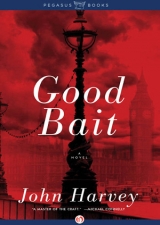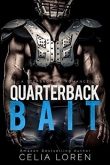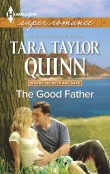
Текст книги "Good Bait"
Автор книги: John Harvey
Жанр:
Триллеры
сообщить о нарушении
Текущая страница: 8 (всего у книги 19 страниц)
22
Paul. Paul Milescu. Were it not for Google, Karen would never have known that Paul was the fourth most popular male name in all of Moldova. How had Clare Milescu put it, harking back to the time she spent in the country working for the UN? A directive urging them to engage with members of the government, one she’d taken all too literally. Paul Milescu had been something important in the Ministry of Justice and, despite being married, he had become popular with her, too.
Now they were separated, going their different ways. Clare still fighting the good fight, following her conscience, working with refugees, while Paul, once in London, had used the connections he’d built up and gone into business. Nothing wrong with that. Except now it seemed he’d tried using those connections to bring pressure to bear on Karen’s investigation; pressure enough to get a detective chief superintendent out trawling the streets of north London at night like something out of Len Deighton or John le Carre.
Explicable enough, in a way; commendable, even – a father’s natural instincts, offering protection to his son, wanting to keep him from trouble. Or was it more? A pre-emptive move to keep the police at arm’s length from himself, his family, his business?
What was his business?
Here Google didn’t really help. Import/export, that and not a great deal more. Importing and exporting what? No details, certainly. Maybe, like Terry Martin, it was sportswear, women’s clothing. And possibly Martin was right, Karen thought, it was all we did in this country any more, import stuff made cheaply elsewhere now that we made hardly anything ourselves – and what we did seemed to be owned by someone else. The Americans, despite their fading economy, had controlling shares in everything from chocolate to Liverpool Football Club; the Russians had a football club of their own and half the expensive properties in London, while just about everything else was being snapped up by the Chinese.
She looked again at the paucity of information on the screen.
A PO box address, phone number, fax, email. Perhaps she should simply pick up the phone, dial the number, ask him outright?
Hey, Paul …
Then again, perhaps not.
She had a friend, Tom Brewer, in the Intelligence Unit of Economic and Specialist Crime – sort of a friend, they’d met on a Home Office course a few years before, shared a few drinks, he’d asked her out, she’d said yes and then said no – she’d give him a bell. No favours to call in, just a hint of what might have been. Brewer newly married she’d heard, two stepsons and a semi-detached in Child’s Hill.
She left a message, didn’t have to wait too long for him to respond.
‘Karen, long time no see.’
‘A small favour, Tom, that’s all.’
He rang back in a couple of hours. ‘Milescu, everything pretty much above board as far as I can see. Connections with a couple of firms exporting bauxite and aluminium; partners in Russia and Romania. Some export trade seems to be tied up somehow with Italy; exactly how isn’t too clear. Then there’s a quite profitable import business in chemicals linked to the Ukraine.’
‘Nothing chancy?’
‘Not that you could lay a finger on. Ever since the country joined the World Bank in ’92, trade has blossomed – from a very low base admittedly – and Milescu’s just ridden the wave along with it. The fact that he’s clearly got connections close to the heart of government probably hasn’t done him any harm. Contracts put out to tender, he’s going to be near the head of the queue more often than not.’
‘But nothing illegal?’
Brewer laughed. ‘Down to your definition of illegal. But in a way that might be of interest to us, officially, I’d say no, pass.’
‘Thanks, Tom.’
‘Maybe we could meet up for a drink some time? It’s been a while.’
‘Sure, I’d like that. You could bring your wedding photos for me to have a look at.’
He laughed and called her something not very nice.
The next time her mobile went it was Carla, who’d texted her twice already: Ronny Jordan at the Jazz Cafe, she had to be there.
‘Carla, I can’t.’
‘Come on, girl. That guitar. “After Hours”. That sound. Sex on six strings.’
‘You know what? I’d love to, but-’
‘But nothing. No excuses, come on, I’ll see you there. Ten thirty, eleven, that’s when it kicks off. Okay?’
‘I don’t know, Carla, I’ll see. Maybe. But no promises, right?’
Ten thirty, eleven: by then, most nights Karen reckoned to be tucked up in bed with a glass of red and a good book.
She glanced at her own reflection in the darkening window. She didn’t believe she’d just told herself that, but she had. Girl, as Carla would say, you’re getting old. Old before your time. She should make the effort to get down there after all: race home, get changed into something suitably funky and cab it to Camden.
Ronny Jordan: ‘The Jackal’; ‘A Brighter Day’.
Tempting as it was, she knew she’d do no such thing.
Carla was standing in line, the crowd thickening around her; stop-start of traffic at the lights, exhaust fumes dispersing pale grey into the night air. If the temperature dropped much more it would be freezing hard by the time they emerged the far side of midnight.
She hunched up the collar of her padded coat and shuffled a few short paces forward, even though they were not really moving, the queue simply becoming more compressed. Someone’s elbow poked into her back and she turned, the man’s face an apologetic leer.
‘Sorry, darlin’.’
Sorry, darlin’, who spoke like that any more? Outside of EastEnders, that is? The East End itself, mostly Bangladeshi now as far as she could tell, other than a few smart young Metropolitans busily rebranding it with artists’ studios and architect-designed apartments.
‘Seen him before, have you? Ronny? Fuckin’ brilliant.’
His nose pushed, like a chisel, down from the centre of his face, his teeth, when he smiled, were large and yellow – horse’s teeth.
With a quick, dismissive shake of the head, Carla edged forward. This guy was actually hitting on her. Unbelievable!
Unable to move farther, she squeezed herself towards the wall.
As well she did.
In retrospect, she heard the car approaching fast, faster than was safe; the sudden braking, shouts and screams from those positioned near the kerb, and then the shot. A single gunshot. Loud. Close. No backfire. Little doubt what it was.
Someone cannoned against her from behind and, as she turned, stumbling, something splashed, warm, stickily wet, across her face, and the man with the chisel face was suddenly in her arms. Close up, hissing through yellow teeth, before, heavy, he fell away, and Carla, stooping, aware – amidst the shouting, the panic – of three more shots, one echoing into another and then the squeal of brakes, a car door slamming, the engine accelerating fast away.
There was a long moment in which nobody seemed to speak or move, and the dead man – she supposed he was dead – lay at her feet, one arm stretched out, fingers bent back by the wall, as if trying to tunnel to safety.
The side of his head no longer seemed to be there.
Carla shook. Shuddered. Jumped when a hand gently touched her arm.
‘You’re hurt,’ the young woman said, pointing. ‘Your face. It’s bleeding.’
Carla blinked the blood away from her eyes and brought her fingers gingerly to her cheek. She could hear the sirens, police and ambulance, drawing closer. Knew she should use her mobile, contact Karen: as soon as she stopped shaking, she would.
23
By the time Karen arrived the street was cordoned off from below the crossroads north to the junction with Arlington Road. Uniformed officers, yellow tape, police vehicles in abundance.
The lights over the Jazz Cafe still stood out brightly, but the blue shades had been pulled down low across the windows and the interior was dark. People stood around in twos and threes outside the immediate cordon, stunned, too stunned to go home; talking in an abstracted, desultory way, some of them, to officers with notebooks at the ready. Ronny Jordan had departed long since, the short journey from dressing room to limo, from limo to his hotel.
Karen knew the senior officer on the scene, a detective inspector from Albany Street who’d been pulling a late shift when he’d taken the call. Blue-black raincoat, thinning hair, heavily lidded eyes; hands in pockets, his voice gravelly from too many cigarettes, too little rest.
‘It’s a bastard,’ the DI said.
Two dead, one at the scene, a single bullet to the head; the other, gunned down as he ran, had been shot three times, twice in the chest, once in the neck. He had bled out in the ambulance on the way to the hospital. DOA.
‘A real bastard.’
Karen agreed.
She found Carla sitting in a huddle of clothes in the entrance to the Odeon cinema opposite, leaning back against the wall. One of the attendants had fetched her a cup of sweet tea and tissues to wipe the blood from her face. It still clung here and there to her skin, tendrils of her hair.
The moment Karen approached, she burst into tears.
Karen squeezed her shoulders, gripped both hands hard.
‘I told you, didn’t I?’ Carla said, forcing out a smile. ‘I told you you’d be missing something.’
Karen squatted down beside her. ‘You okay?’
‘What’s it look like?’
‘You weren’t hit?’
‘Just frightened out my fucking wits.’
‘And you didn’t see …?’
‘I didn’t see anything. Just this guy, the one, you know …’
Carla clenched her eyes closed and he was still falling towards her, only slowly now, slowly as if through water, and she was reaching out to catch him, because, automatically, it’s what you do, and, just for a moment, he was there in her arms, safe, then gone.
‘Just the guy who got shot,’ she said, recovering. ‘Nothing else. Not the … the shooter. Is that what you call him? The shooter? Too many of those cop shows, you learn the language, the lingo.’
‘The gunman, maybe,’ Karen said. ‘It doesn’t matter.’
‘Either way, I didn’t see him. Not really. Just someone ducking away, back towards the car.’
Karen nodded. Knew she didn’t need to ask Carla about the car itself, there’d be descriptions of that by the dozen, too many, too many of them conflicting. The gunman, the same. The man behind the wheel. Too many witnesses as against too few.
‘I’ll organise a driver,’ Karen said. ‘Get you home. Sometime tomorrow, you’ll need to come in, make a statement.’
‘No. Let me wait here for you. I don’t think I can face going home on my own.’
‘Here, then.’ Karen reached into her bag and took out her keys. ‘Take these. Go back to my place, wait for me there. I’ll have someone run you over. Get out of those clothes, shower, get some sleep. I’ll get back as soon as I can.’
‘You’re sure?’
‘Sure. There’s a spare set of keys at the office, I’ll pick them up on the way.’
Karen bent quickly and kissed the top of her head.
‘See you later.’
It was close to four in the morning by the time Karen finally got back to her flat, later than she’d intended. Carla was curled up in her bed, wearing an old pair of borrowed pyjamas and snoring lightly. Karen tiptoed back out of the bedroom and into the kitchen. Hot chocolate. Toast and jam. The initial work at the scene complete, the local DI had been only too pleased to pass the investigation along to Karen and her team – Homicide, that’s you, after all. More aggravation than he needed. On the settee, Karen made the mistake of closing her eyes and was asleep within moments.
She woke less than an hour later; threw the uneaten toast into the bin, poured cold chocolate down the sink and swilled out the mug; swallowed down two Ibuprofen with water; swiftly showered; changed. She thought twice about waking Carla, who was still sleeping, out to the world, and finally decided against it. Left her a note instead. Later in the day, she’d seize a minute, phone or text, arrange for her to come in and make a statement, make sure she was okay.
Less than an hour later, she and Mike Ramsden were in her office, going over what they knew, what they needed to know, what needed to be done.
The vehicle used, most witnesses seemed to agree, was a black BMW X5, the registration less certain, save an agreement on the numbers 233. CCTV was being monitored, a selection of possible registrations had been sent to DVLA in Swansea; high-end hire-car firms were already being checked.
The individual responsible for the deaths of both men – the gunman, the shooter – had been variously described as shortish, tall, of medium height, slim and stockily built. Dark haired, save for one witness who had him wearing a beret and another who swore blind he was bald, and dark skinned. You mean black? No, not black. Asian. Not Asian? Middle Eastern, then? No, not that either. Swarthy, that was the word. Dark skinned, like I said before. White, but dark skinned. European.
The man shot dead on the pavement alongside Carla had been identified from the contents of his wallet as Aaron Johnson. The second victim had no ID on him whatsoever: no credit cards or driving licence, no mobile phone – all of that suspicious in itself.
Aaron Johnson, forty-three years old, an address in Lewisham: one of the half-dozen or so names Tim Costello had come up with when he was checking out Terry Martin’s associates.
Killed with a single shot to the head.
A gang hit, had to be.
Yet, according to his record, Johnson had served only a couple of brief spells inside, neither more than eighteen months, petty thieving, robbery; one charge of unlawful wounding had been shunted aside before it came to court, another of aggravated burglary was dropped when both witnesses suffered a convenient amnesia. Nothing that suggested heavy gang involvement, the kind of retribution that had been meted out here.
Perhaps, Karen thought, he was stepping up. Out of his league.
She called Gerry Stine, the Intelligence Support officer who’d proved so useful in helping identify Petru Andronic’s body at the beginning of the year. After listening for several minutes, Stine cut across what Karen was saying. ‘Afraid you’re priming the wrong man. Little off my field of expertise. But if you want a better suggestion, I can field a few names.’
The one Karen lighted on first was Warren Cormack, a DCI within the Project Team of Serious and Organised Crime Command, SCD7, which dealt, according to the rubric, with multi-dimensional crime groups, ethnically composed gangs and proactive contracts to kill. She’d heard one or two good things about him in the past; now was the time to see if they were true.
His office phone directed her to his mobile, which instructed her to leave a message, the voice just this side of brusque. Give him a couple of hours, Karen thought, then move down to the next name on the list.
Less than an hour later, Cormack called her back. He’d heard about the Camden shooting; thinking it almost certainly gang related he had started making a few preliminary inquiries himself.
‘Still no ID on the second hit?’ he asked.
‘Not so far.’
‘Description?’
‘Caucasian male, aged between thirty and thirty-five, medium height, dark hair, blue-grey eyes. That’s about all.’
‘No identifying marks? Scars? Tattoos?’
‘Not a one.’
‘Dental records?’
‘Nothing so far.’
‘Innocent bystander.’
‘Could be.’
‘Lived a clear and blameless life.’
‘Why run?’
‘Wouldn’t you?’
She could hear faint traffic sounds, as if Cormack were standing near an open window. Run?Yes, she’d run. Run, duck, hide. But would the gunman risk identification and possible capture if his prime target was already down?
‘Tell you what,’ Cormack said, ‘send across some pictures, head and shoulders, full face, profile, you know the kind of thing. I’ll get them fed into the system, see what emerges.’
‘How long?’
‘Check that through? Might strike lucky. This time tomorrow? Don’t come up with anything by then, I’m probably not going to be able to help.’
‘Thanks, anyway,’ Karen said. But he’d already rung off.
24
Twenty-four hours. Warren Cormack was as good as his word. They met, at his suggestion, in Victoria Tower Gardens, just beyond the Houses of Parliament and overlooking the Thames. Tide out, gulls scavenged along a narrow strand of muddy bank strewn with discarded rubbish. New Scotland Yard was no more than a brisk stroll away, pleasant enough beneath a wash of wispy cloud, a patina of palish blue.
Cormack proved to be younger than he’d sounded on the phone, younger than she’d anticipated, less abrupt. Slim features, neatly suited, off-white shirt, pearl grey tie, still the right side of thirty-five.
‘This okay by you?’ He gestured towards a bench facing out towards the river, Lambeth Palace and St Thomas’ Hospital on the opposite bank.
‘Fine.’
‘Not usually too many people around.’
‘Bolt-hole, then?’
‘Something like that.’
Sitting, he loosened his tie just a little; one arm, crooked, along the back of the bench. Making her wait. One of a brace of ragged crows hopped hopefully close, then hopped away.
‘Jamie Parsons,’ Cormack said, finally. ‘The pictures you sent over. A definite match.’
‘He’s known?’
‘Only tangentially. That’s why he wouldn’t have shown up on your radar. Bottom-feeder stuff, really. Does a lot of footwork for a guy called Gordon Dooley, who we certainly do have an interest in.’
‘Dooley?’
‘A dealer, fairly big-time, contacts all along the south coast, Margate, Brighton, Portsmouth, Southampton. Main source of supply was through the Netherlands, Rotterdam, but since Border Agency and Customs seem to have succeeded in stemming that particular flow, for now at least, he’s been having to look elsewhere.
‘There’s no definite proof, but we think he’s behind a spate of raids on cannabis farms across the south-east. Most recent was in Essex, the outbuildings of a disused farm close to Manningtree; before that, a deconsecrated chapel just outside Great Yarmouth. Just those two raids, upwards of two thousand plants stolen, that’s going to yield around fifty metric tons of cannabis for illegal sale.’
‘And these farms, who’s behind them?’
‘Difficult to say. Precisely. The workers at both premises were mainly Chinese, illegally trafficked into the country, very little English. They’d been badly beaten, some of them, during the raids, tied up with baling wire. Terrified out of their wits. They’re not going to give us a great deal, even if they wanted to. But most of that trade – what isn’t still in the hands of Dooley and his ilk – it’s the province of organised gangs originating in Eastern Europe. Turkey. Albania.’
A pleasure boat went past them downriver, heading towards Tower Bridge and beyond that to the Thames Barrier, hardy souls on deck wrapped in scarves and fleeces, the voice of the tour guide torn by the breeze.
‘Dooley,’ Karen said, ‘if he is involved, presumably he’s not going to be carrying out these raids single-handed.’
Cormack shook his head. ‘South London, that’s his stamping ground. Home patch. Recruiting, that’s where he’d look. No shortage of possibles, keen for a ruck. Especially if there’s a good chunk of cash at the end of it. A couple of known associates with more than a propensity for violence. A few hangers-on.’
‘Parsons being one.’
‘Parsons being one.’
‘And Aaron Johnson another.’
‘Maybe. A reasonable assumption. But we don’t know for sure. As it stands, nothing to say they knew one another before Camden. Not much to link them together aside from a liking for Ronny Jordan.’
‘How about Terry Martin?’
‘You looking for a connection?’
‘Maybe.’
‘Any special reason?’
She told him about Petru Andronic’s murder, her suspicions that Martin might have been involved.
‘Well, it’s a name we know, more through the company he keeps than anything else.’
‘Company?’
Cormack smiled, shifted his position on the bench. ‘How about this? One of Dooley’s hard men got out of the Scrubs just a month before the raid in Manningtree. Went inside for going after some guy Dooley reckoned had been holding back on his payments; left him with a ruptured spleen and more broken ribs than you could easily count.’
‘Let me guess, Carter.’
‘Mad Mike himself.’
‘The link, you think, between Martin and Dooley?’
‘One of them, I’d say.’
‘So how involved in all of Dooley’s dirty work do you think Martin might be?’
‘Difficult to say. Anywhere between not at all and very. As muscle, maybe. More than that …?’ He shrugged his shoulders, dipped his head.
‘He’s not dealing himself, I suppose?’
‘Not as far as we know. There was a suggestion a while back that he might have been smuggling in drugs along with his shipments from the Baltic. Couple of containers were opened and searched – nothing but plastic wraps of cheap clothing on their way to small-scale shops and market stalls up and down the country.’
Karen sat back, starting to run the possibilities, the variables, through her mind. ‘How do you want to play this?’ she asked.
‘You run with your investigation, let your team know as much as you think they need. We’ll keep up our surveillance on Dooley, maybe widen it to take in a couple of the others. Anything important starts to show, I’ll put you in the frame.’
‘Likewise.’
‘Okay, good.’ He got to his feet and Karen followed. A scattering of scruffy pigeons made as if to take flight but their hearts weren’t in it.
Karen thanked him, meaning every word, shook hands, and set off towards Westminster Tube station. The protesters she understood to have been moved on from Parliament Square still seemed to be present in quite large numbers. No tents any more, no one sleeping rough, but banners a-plenty. Capitalism STILL isn’t Working. Stop the War in Afghanistan. Bring Our Troops Home Now. And alongside that last, writ large, the ever-increasing numbers of fatalities from what some general or politician, without irony, had named Operation Enduring Freedom, the total growing, growing, growing, year on year.
Compared to that, she thought, crossing against the slowly moving traffic, what she had to deal with, serious in its way, was small beer indeed.








